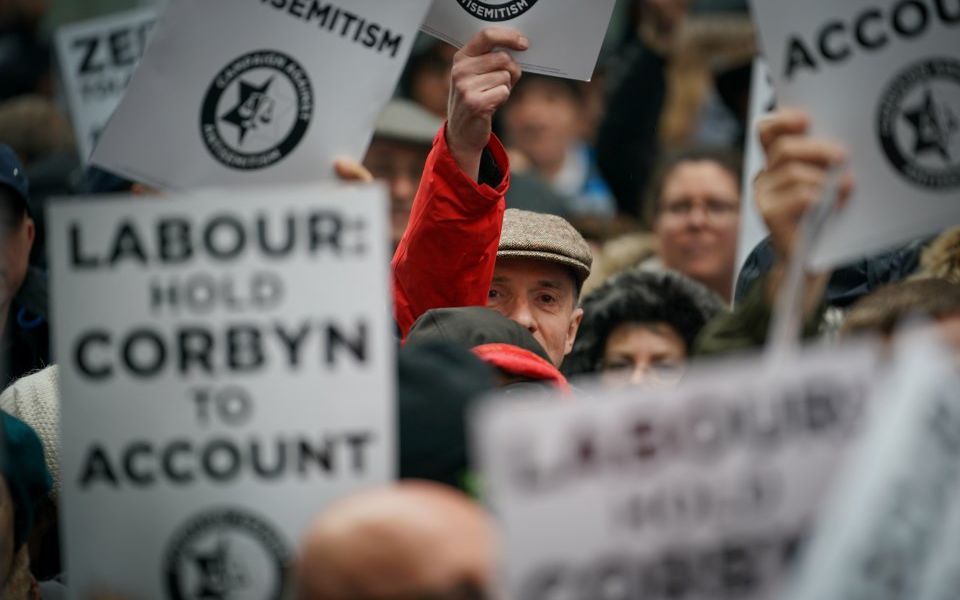Antisemitism oblivion could push Corbyn’s leadership over the edge

In the wake of his appointment as Labour leader three years ago, it seemed that Jeremy Corbyn could do no wrong.
His controversial history and past parliamentary rebellions were all proof of genuine commitment rather than poor judgement, and were a breath of fresh air in politics.
But the decisions he is taking as leader now are bringing that past back to haunt him – and it may cost him the leadership.
Corbyn’s appeal is that he isn’t styled, isn’t dictated to by messaging, and – critically – won’t change stance simply because there might be a few votes in it. This served him well in last year’s General Election (though not enough to actually win), and has made the Labour party once again a genuine mass membership party.
It appeared that no one (at least, no one on the left) seemed to mind about the views that he had expressed clearly in the past. We all knew about his sympathies for Irish republicans, dictators in Venezuela and Cuba, and radical pro-Palestinian movements – and these seemed to make little difference on polling day.
If anything, the attacks on Corbyn simply proved to his supporters that “the establishment” was panicked and didn’t know what else to do to challenge him.
But something is changing. Corbyn’s quiet assent of his party’s attempt to rewrite the internationally accepted definition of antisemitism in its code of conduct has put his past views back on display – and they make for extremely uncomfortable reading. At every turn, his silence and inaction make the problem worse.
In recent weeks, we have seen prompt sanctions promised against Labour MPs who criticise the leader and the party over this crisis, while those accused of antisemitism are still awaiting any party discipline. In particular, it seems a “sorry” from Labour’s National Executive Committee (NEC) member Peter Willsman for his “Trump supporting Jews” comment is enough to get him off the hook. Anti-Corbyn voices, meanwhile, have been threatened with deselection and expulsion.
Labour’s antisemitism problem, and Corbyn’s role in exacerbating it, is not news. It was Corbyn, after all, who commissioned Shami Chakrabarti’s inquiry into antisemitism in Labour, and then, though many in the Jewish community had little faith in the report’s weak conclusions, recommended her for a peerage and gave her a frontbench position.
What is new, however, is the way that those around Corbyn are starting, for the first time, to isolate him.
The previously radically pro-Corbyn pressure group Momentum has dropped Willsman from its NEC list after his outburst. There have been public comments from Labour activists supporting the fuller definition of antisemitism that was cut from Labour’s code, and anonymous briefings revealing who stood up to Corbyn on this issue in past arguments.
And even shadow chancellor John McDonnell has been more forceful about the need for Labour to confront antisemitism than Corbyn has.
This is all happening against the backdrop of Labour’s failure to make any breakthrough in the polls.
While Corbynites cite support before last year’s election as proof of their approach, the reality is that the electorate has seen more of Corbyn now, and the push forward remains elusive, even with the Conservative party itself in disarray.
Supporters have launched a Twitter hashtag #WeAreCorbyn. This is a sign of weakness, not of strength. The fact that they have to defend their leader on social media, when a key tenet of his leadership was his populist appeal, is a sign of failure.
Corbyn’s decisions about antisemitism (and a lack of action is in itself a decision) have kept the party in the headlines and made himself a target, bringing his history back into the spotlight. Had he taken strong and decisive action two years ago, confronting the criticism and listening to those concerned about his links to antisemitism, this would not be coming back to haunt him now.